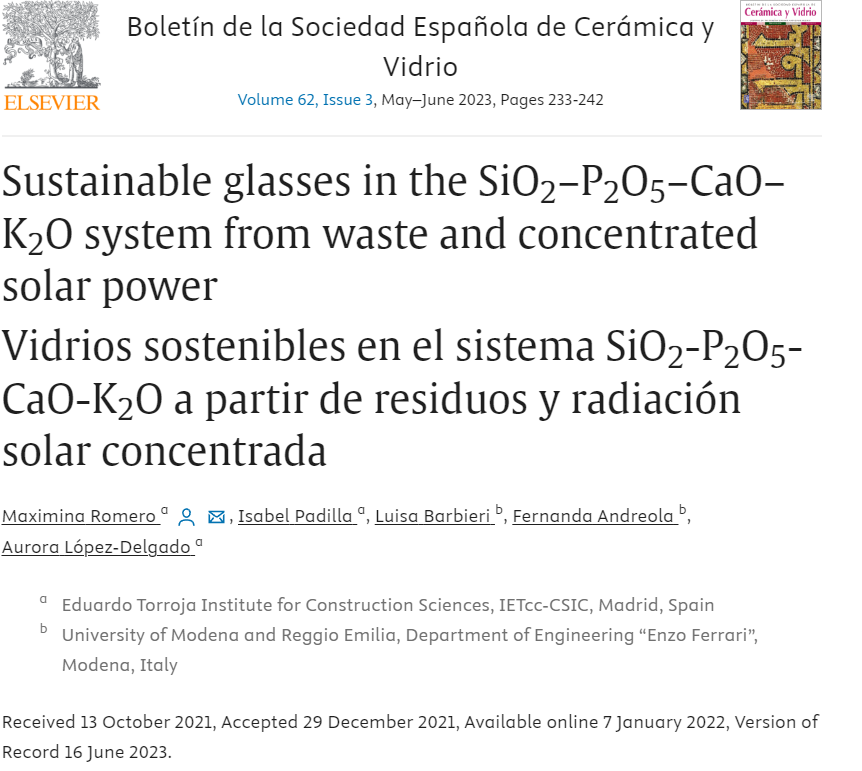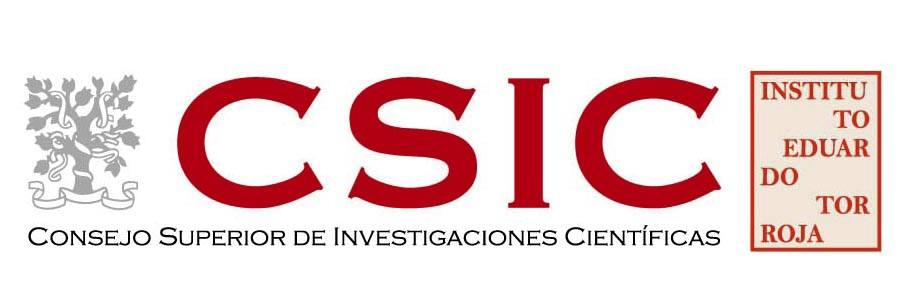Sustainable glasses were prepared by green technology including the use of different wastes as raw materials and concentrated solar power (CSP) as renewable energy.
The raw materials used to formulate the glasses were animal bone flour ash, which presents high contents of CaO, P2O5 and alkaline oxides; glassy sand from the waste of packaging glass submitted to a primary treatment, composed principally of SiO2; and potassium carbonate of reagent grade. Different exposure times to solar radiation were tested.
For comparison, the same composition of glass was melted into a conventional electric furnace. The use of CSP to produce glasses reduces the melting time by approximately 90%, with consequent energy savings. The increased CSP processing time results in more amorphous and thermally stable glasses. The results showed the viability of producing ecofriendly glasses in the SiO2–P2O5–CaO–K2O system, which could be used as matrix-based fertilizers.


